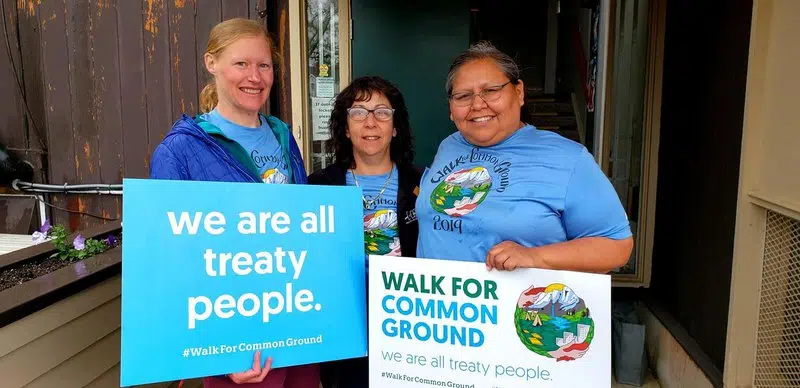
Walk for Common Ground urges Albertans to honour treaty responsibilities
A committed group of around 30 people made it to Red Deer Friday, marking the halfway point of a walk from Edmonton to Calgary which urges Indigenous and non-Indigenous persons alike to find what brings us together.
The Walk for Common Ground began at the Union of Healthcare Professionals (HSAA) convention on May 31, and will wrap up June 14.
Over the course of the walk, participants are stopping in at churches, colleges and local union halls to engage folks in education and reflection on the meaning of treaties signed in the 1870s.



